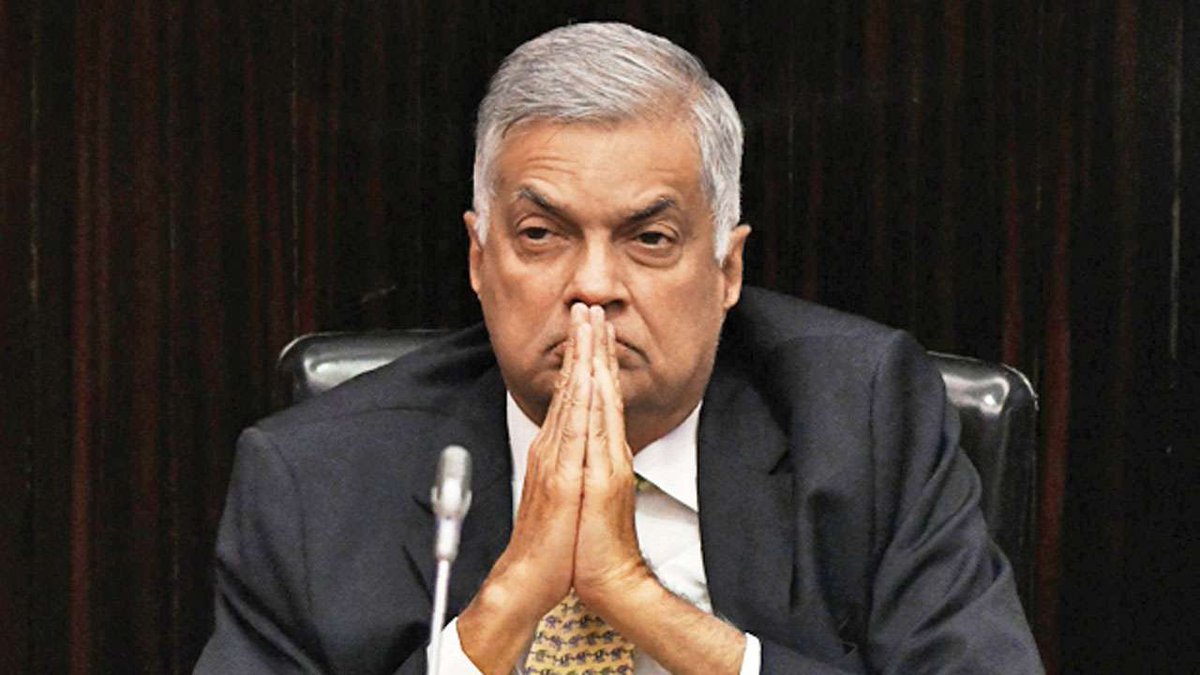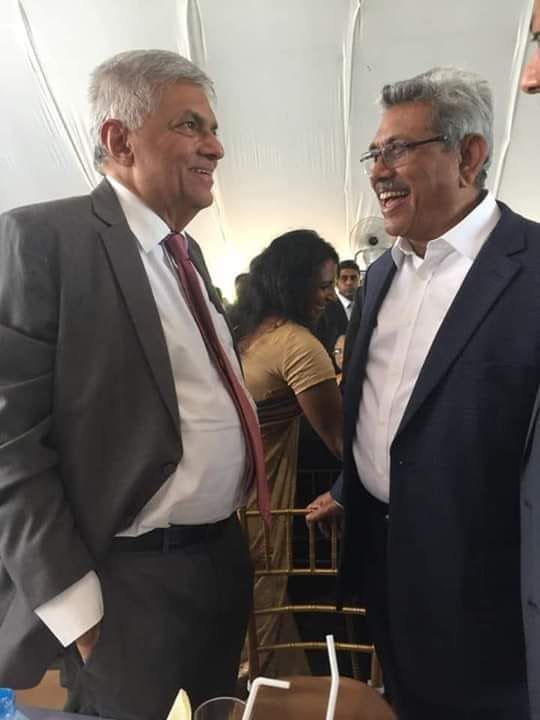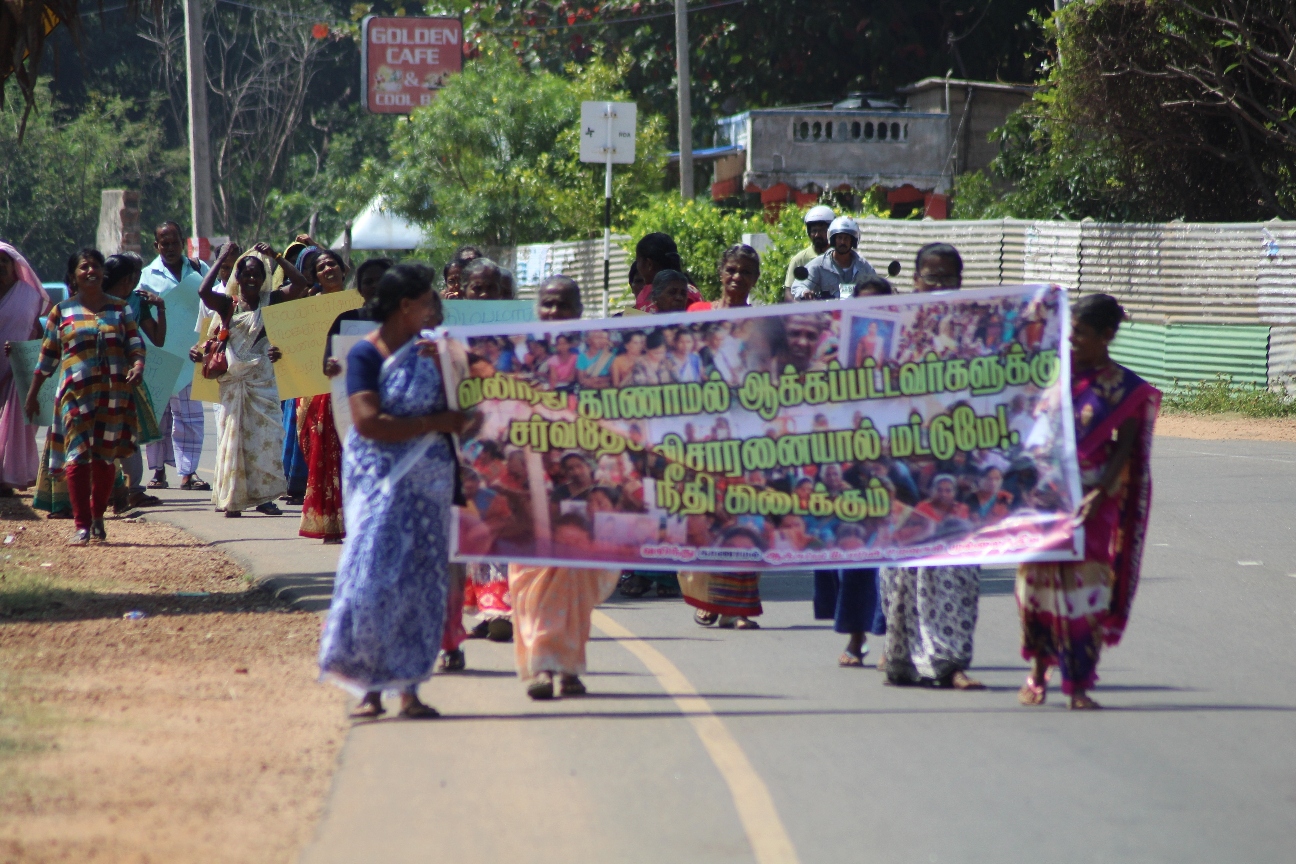Updated 1145 GMT

Ranil Wickremesinghe has announced that he will resign from his role as Sri Lanka's prime minister and will be informing the new president of his decision tomorrow.
In an official Sinhala language statement, Wickremesinghe claimed that he valued and respected "democracy". "For this reason, I will step down to allow the new president to establish a new government. I will officially inform him of my decision tomorrow".
His resignation comes in the wake of this week’s presidential elections, which saw Gotabaya Rajapaksa appointed Sri Lanka’s president. Reports suggest that Gotabaya may now invite his older brother and former president Mahinda Rajapaksa as Leader of the Opposition, to form a new government.
See latest: Mahinda Rajapaksa to be sworn in as Sri Lanka PM
Wickremesinghe has been the leader of the United National Party (UNP) since 1994 and served as Sri Lanka’s prime minister for a total of three terms.

Wickremesinghe with Gotabaya Rajapaksa earlier this year.
During his most recent tenure, Wickremesinghe has consistently upheld the Sinhala Buddhist nature of the Sri Lankan state, pledging that any constitution for the island would ensure Buddhism continues to hold the “foremost” place and denying there would be any federal solution to the ethnic conflict.
Read more below:
New constitution drafted within 6th Amendment says Ranil
Ranil denies federal solution and pledges to uphold Buddhism in new constitution
Ranil assures monks of Buddhism's foremost place
Ranil claims to have ‘preserved Sri Lanka’s sovereignty’ at United Nations
He has also consistently stated his opposition to any international accountability mechanism for violations of international humanitarian law, even claiming that his government’s ability to postpone UN resolutions “saved Mahinda Rajapaksa from the electric chair”. He also claimed to have saved members of the government from being hauled before the International Criminal Court.
"We will never accept an international war crimes tribunal," he told Sri Lanka's parliament in 2016. "I never approved the Rome Statute. Sovereignty lies with the people according to our Constitution."
Read more below:
‘We will never accept an international war crimes tribunal’ – Sri Lankan prime minister
‘I saved Rajapaksa from the electric chair’ claims Ranil
‘South will look after the Southerners’ says Ranil
Ranil says 'govt has no desire to send soldiers to any court'
Wickremesinghe also notoriously triggered outrage amongst Tamils in the North-East, when he claimed that the thousands of Tamils that surrendered during the final phase of the armed conflict or were forcibly disappeared Tamils were “most probably dead”. His visits to the North-East would subsequently trigger protests from families of the disappeared.
Read more below:
Missing and disappeared persons most likely dead says Sri Lanka prime minister
Sri Lankan PM faces backlash after telling Tamils to ‘forget the past’
The missing are considered dead says Sri Lankan prime minister
Mannar disappeared families protest Ranil visit
Police block families of disappeared protesting in front of Ranil
Families of the disappeared protest against Wickremesinghe in Mullaitivu earlier this year.

